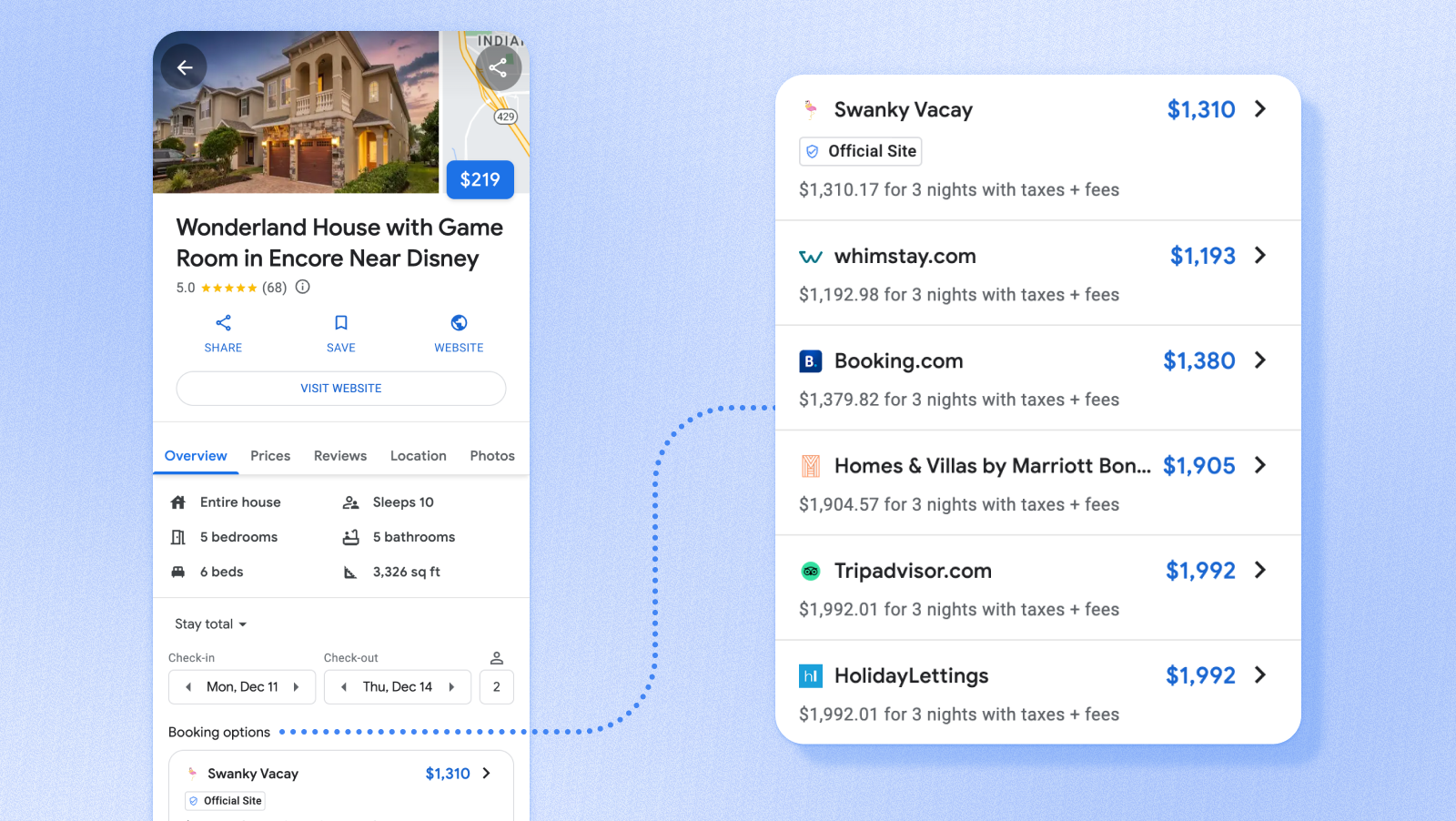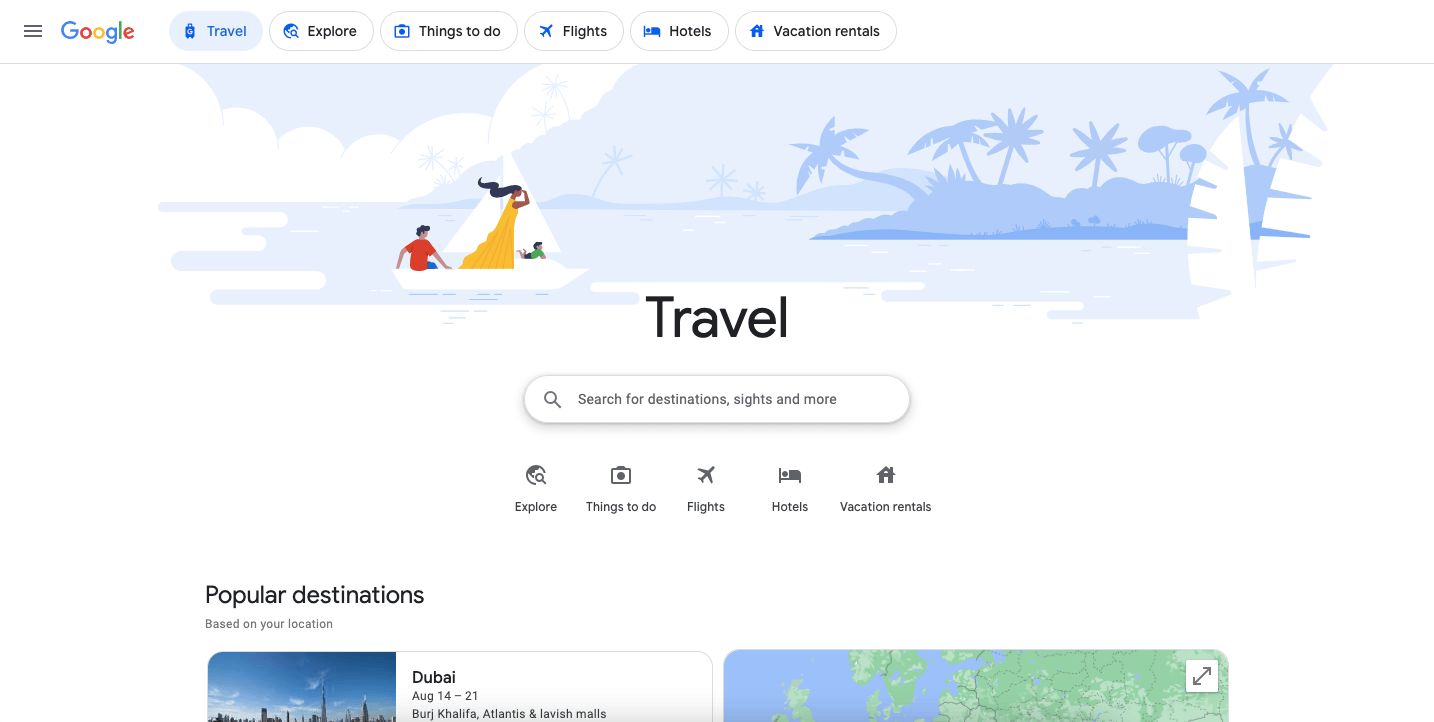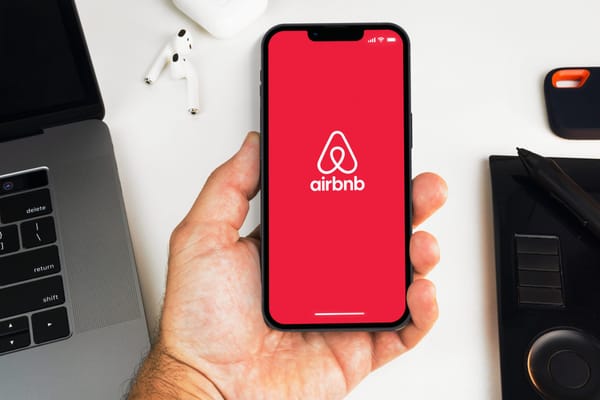How to Get Listed on Google Vacation Rentals

There is no denying that the vacation rental industry continues to gain momentum. In 2023, the demand for vacation rentals outpaced supply, with that trend set to continue in the coming years.
What’s more, this growth in short-term rentals has not gone unnoticed by Google. While Google Vacation Rentals has been around for some time already, it has gained even more traction recently.
In October last year, Google took its push into Vacation Rentals a step further by adding price comparisons for short-term rental listings, amongst other developments. Here’s an up-to-date guide on the latest features and tips on how to maximize exposure.

Why is Google Focused on the Vacation Rental Market?
Google Vacation Rentals has become an essential tool for property owners and managers looking to maximize their reach and bookings.
Launched as part of Google Travel in 2019, this feature now seamlessly integrates vacation rental listings directly into Google Search and Google Maps, providing more exposure for short-term rental properties to guests looking to book accommodation.
Indirectly Google is ensuring it is able to meet its customers at the point of their needs as the popularity of vacation rental properties continues to grow.
How Are Google Vacation Rental Listings Displayed in the Search Results?
To understand why Google Vacation Rentals can be beneficial to hosts, let’s first look at how this functionality is displayed on Google.
To find this functionality, a user can type, “Chicago Vacation Rentals”, into the main search bar.
Then, in the Google search, they will see a vacation rental snippet and a map with rates displayed in their home currency.
Usually, searchers will be able to find it between a block of expensive paid ads and organic search results occupied by powerful OTAs (Online Travel Agencies) such as Airbnb and Vrbo.
Google’s functionality enjoys a lucrative spot in the search results and entices users to click on it without even having to start researching what major OTAs have to offer.
If a traveler clicks on the “View all rentals” button, they will be redirected to the Google Vacation Rentals search page right away. It works like a separate search engine that operates within Google.
On this page, users can refine their vacation rental search further by applying various filters like:
- Destination
- Arrival and departure dates
- Prices
- Rating
- Amenities
- Number of guests
- Number of rooms
- Type of accommodation (apartments, cottages, houses, etc.).
Users can also switch between holiday rental and hotel search results by using the toggle in the filters. It is important to note that in the map that is available to the right of the short-term rentals list, the exact location of an individual vacation rental property will be made available only after the reservation is finalized. This is done to respect the privacy the of vacation rental owner and their guests.
Another important thing is that this functionality works as an aggregator and users are not able to book directly via Google. Instead, to reserve a property, they will be redirected to the website of the vacation rental platform or property management company where the vacation rental is listed. So the individual vacation rental property still gets traffic to their OTA, and these do not count as direct bookings.
What Are the Benefits of Google Vacation Rentals for Hosts?
One of the key benefits is that Google is one of the most used search engines. Major OTAs and property management companies pay a fortune to appear at the top of Google search results.
At the end of May 2021, it started to include rental properties in the general accommodations search results on Google Travel. Now, vacation rental listings will get displayed just like hotel accommodation options. This means that you can significantly increase your visibility by being featured among vacation rentals on Google.

In addition, as mentioned earlier, this functionality can be found between Paid Ads and organic search results (which are usually occupied by powerful OTAs). So, there is a real possibility that smaller vacation rental hosts can rank among the bigger OTAs with the help of Google Vacation Rentals.
Moreover, as Google is one of the most credible and reliable search engines, travelers will view your rental in the same light. Thus, improving the prominence of your listing on Google Vacation Rentals and Google Travel can be a great way to build more trust among your target audience.
How Do I List My Short-term Rental on Google Vacation Rentals?
Google Travel is an aggregator of OTA listings, therefore it is not possible to create a listing directly on Google's search engine. Instead, you need to work with one of Google’s approved partners.
These listing categories aren’t currently eligible to be listed in Google’s vacation rentals search results:
- Individual homeowners
- Peer-to-peer rentals
- Individual rooms
- Partial homes
Individual homeowners aren’t currently eligible for a Google Business Profile for their physical home, and individual or subleased homes aren’t considered businesses for Google’s vacation rentals search results. Here are the four options that you currently have if you would like your rental to be featured among vacation rentals on Google.
1. List your property on vacation rental sites partnered with Google
Chances are your property is already displayed among the individual vacation rental properties displayed on Google. If you listed your short-term rental on one of the partners OTAs and channels, it might have already been picked up by the search engine's crawlers. These OTAs and channels include:
- Expedia
- Vrbo
- Hotels.com
- RedAwning
- HolidayLettings
- TripAdvisor
- Booking.com
- Agoda
- Casamundo
- Homes & Villas by Marriott International
- Cottages.com
- PlumGuide
- Vio.com
2. Enlist the services of a large property management company
Listings that are managed by big property management companies tend to appear among Google Vacation Rentals listings too. These companies include:
- Vacasa
- Vtrips
- OneFineStay
- Awaze
- Oyo
- Evolve
- Avanstay

3. Work with Google-approved connectivity providers
If you want to integrate with Google Vacation Rentals, you can also work with a Google Approved Connectivity Partner who will be able to complete the one-time tasks for you. The Google-approved connectivity partner should:
- Assign a designated partner technical contact (the Google search engine technical account manager should be able to contact this person)
- Provide a signed contract with Google to safeguard customer privacy
- Offer email-based user support or localized self-service.
4. Integrate with Google Vacation Rentals directly
Only companies that have over 500 properties can build a direct integration with Google Vacation Rentals. If your company meets these requirements, you can begin the process by following Google's recommended steps.
Get Listed with iGMS
iGMS now integrates with Google Vacation Rentals, attracting more bookings for your property without spending on promotions or paying high third-party fees. Some OTAs also partner with Google Vacation Rentals, but those bookings may still include standard OTA fees.
It's as easy as listing your Direct Booking Website through iGMS. For step-by-step instructions, check out our helpdesk article on the topic.
If you don't have a website yet, we can help you get it all set up and have you listed in no time.
Google My Business vs. Google Vacation Rental Listings
Google Vacation Rentals should not be confused with Google My Business. The latter, Google My Business, has been around for many years and enables most businesses (excluding rental properties) to create a free business listing. So, these are two distinct products on Google.
If you have an office that interested travelers can visit, you can create a free Google My Business profile. If you want to go this route, you can use a business category like a property management company or vacation home rental agency. This way, your business will also appear on Google Maps as well as Google’s search results.
It is important to note that if you use this workaround to list your property on Google My Business, it won’t help you to get your properties displayed on Google Vacation Rentals. Also, similarly to Google Vacation Rentals, the exact location of individual holiday rentals will not show on Google Maps due to privacy rules.
Can I Get Traffic for My Direct Booking Website Through Google Vacation Rentals?
Even if a host has a direct booking website, it is unlikely that it will be picked up by Google Vacation Rentals. Individual vacation rental websites are not included among offerings on Google unless you have enlisted the services of a large property management company or integrated with a Google-approved channel manager.
If you don’t have a website yet but are considering building one, you need to weigh up all the pros and cons as well as the expenses involved. These expenses include outsourced developers, SEO, marketing and branding costs, etc. The expenses should then be contrasted with the money made from direct bookings, streamlining the booking process and saving money on property managers.
Lastly, hosts and property managers should keep in mind that some channel managers do not give you the option to send the traveler to your actual booking site directly. Instead, your property is listed under a URL that belongs to your channel manager.
Direct bookings are a great thing to aim for in the industry, but it might not serve you in the long run when OTAs and search tools like Google Travel can offer much more in terms of exposure.

Do I Need to Pay Additional Fees for Receiving Bookings from Google Vacation Rentals?
At the moment, you don’t have to pay any fees if you have a vacation rental listing on Google Vacation Rentals. Also, Google does not charge any commission on bookings coming from their platform.
In other words, if the traveler finds a listing via Google Travel and clicks on the button that will redirect them to the website of the company that advertises the property, no fee has to be paid. However, you will still have to pay the standard fees charged by the OTA.
If your company has more than 500 properties and opts for setting up an integration with Google, you should factor in additional expenses incurred from this process.
About the Author
Olga Vasylieva is the former Content and Social Media Team Lead at iGMS. Olga's mission was focused on helping hosts and property managers grow their businesses and deliver an excellent guest experience. She is a travel enthusiast and is inspired by life in all its aspects.






